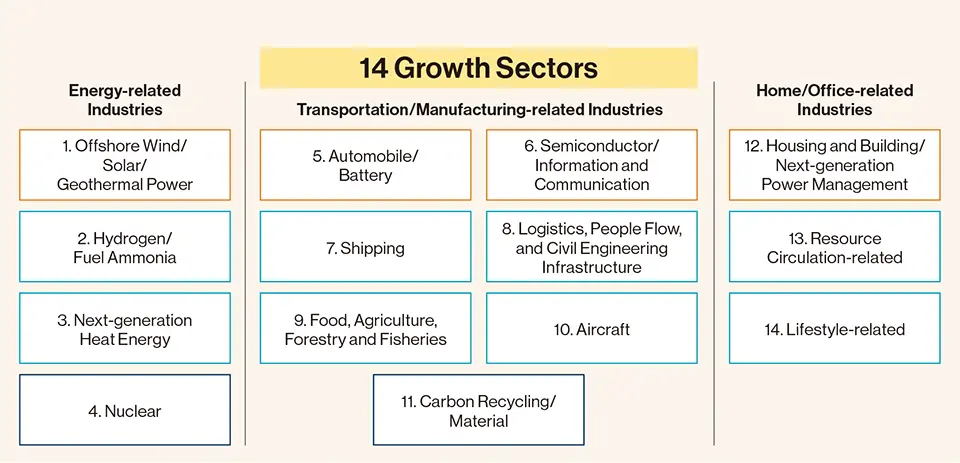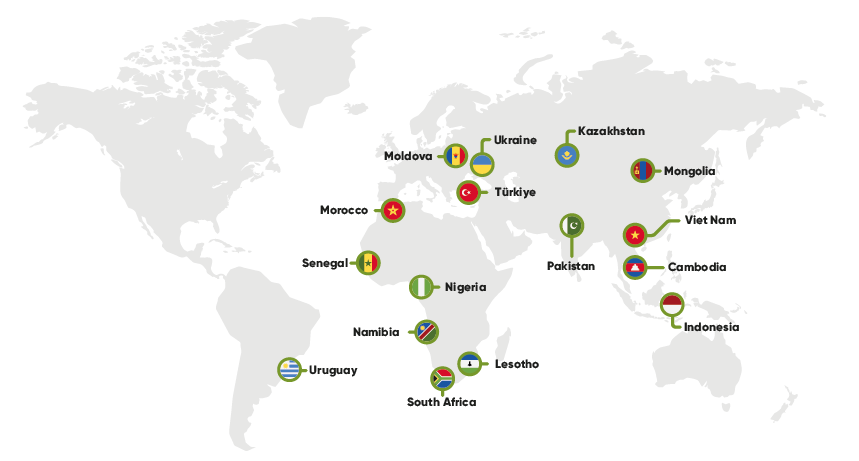Shaping Australia's Climate Future
What Does Climate Leadership Mean?
As the impacts of climate change grow—putting biodiversity at risk and placing pressure on global energy systems—the need for strong and visible climate leadership is becoming more urgent than ever.
As Jessica Robinson from Deloitte explains, climate leadership isn’t just about setting net zero targets. It’s about turning those commitments into real, measurable action—and inspiring others to do the same.
Being a climate leader means taking on the challenges of decarbonization while bringing people together to find solutions. Seamus Hoyne, a sustainable energy expert and Chair of the European Sustainable Energy Innovation Alliance, adds that it takes two kinds of leadership to make real progress: transformational leadership, which drives innovation and big-picture change; and distributive leadership, which shares responsibility and empowers action across teams and communities.
Together, these approaches help turn ambition into action—and that’s what climate leadership is all about. So, who are the people and organizations leading the way? Climate leaders come from all walks of life, but they share a common goal: creating a more sustainable future for everyone.
Who Are the Leading Climate Organisations?
In Australia, climate leaders include a growing number of organizations that are driving ambitious action toward a low-carbon future. These range from non-profits and research institutions to corporations and government-backed initiatives.
The Climate Council
The Climate Council is Australia’s most prominent independent climate voice. Formed in 2013, it provides trusted, science-based information to the public and policymakers, as well as clear analysis of misinformation and disinformation that hinder urgent climate action. Over the past decade, the Climate Council has produced 164 reports, its experts have featured in more than 230,000 media reports, the team has trained more than 1,500 spokespeople to set the record straight on climate change, and they have grown online community to over 550,000 Australians.
In 2015, the Climate Council established the Climate Media Centre (CMC), which connects journalists with powerful stories about people and places currently affected by climate change, along with inspiring stories of individuals and communities taking action to solve the crisis. In 2019, the Climate Council launched Emergency Leaders for Climate Action (ELCA). A year later, ELCA hosted Australia’s first virtual Bushfire and Climate Change Summit, bringing together hundreds of participants from across the country and around the world to share experiences and develop recommendations to tackle the serious threat of climate change.
Beyond Zero Emissions
Beyond Zero Emissions is an independent think tank dedicated to demonstrating how Australia can thrive in a zero-emissions economy. In 2010, their debut report, The Stationary Energy Plan, showed that Australia could be entirely powered by renewable energy—laying the groundwork for others to raise their ambition in this space. The organization also works with communities that have the most to gain—or lose—from the transition to net zero and has published place-based reports for the Northern Territory, Collie in Western Australia, and Port Augusta in South Australia. They are now collaborating with communities in the Hunter Valley and Central Queensland to co-design clean technology solutions.
The Australian Renewable Energy Agency (ARENA)
The Australian Renewable Energy Agency (ARENA) helps fund the future. Since 2012, it has invested in more than 650 projects across renewable energy technologies—from solar and wind to green hydrogen and battery storage. ARENA provide a pathway to commercialization for many new technologies and businesses that would otherwise struggle to get off the ground or be potentially lost to overseas. These organizations are driving change at scale—backed by science, policy, and public engagement—and showing what climate leadership looks like in action.
Why is climate leadership important?
The climate crisis is no longer a distant issue—it’s a real and growing threat to communities, ecosystems, and the economy in Australia. Events like the “Black Summer” bushfires and record-breaking floods in Queensland and New South Wales have made it clear: we need urgent action. This means accelerating our shift away from fossil fuels and building a clean, reliable energy future. That includes ending coal-fired power, rethinking how we move and travel, and reducing emissions in heavy industries like steel and cement.
Climate change is a global challenge that requires urgent action. To achieve the goal of the Paris Agreement—limiting global warming to within 1.5 degrees Celsius this century—greenhouse gas emissions must be significantly reduced by 2030.
As UN Climate Change Executive Secretary Patricia Espinosa stated, “The world has entered a climate emergency, which demands that we increase action to address climate change at all levels as quickly as possible”. This underscores the urgent need for leadership and guidance from governments and all sectors of society.
Importantly, climate leadership is about more than protecting the environment. It’s also about preparing our economy for the future. As countries like the United States pour billions into clean energy through legislation like the Inflation Reduction Act, Australia has a narrow window to seize similar opportunities. For instance, demand for Australian lithium is expected to grow rapidly, potentially surpassing the value of coal exports by 2028. However, without strong leadership and strategic investment, Australia risks losing talent and investment to other countries. As Climate Change and Energy Minister Chris Bowen puts it, climate leadership positions Australia to become a global clean energy powerhouse—and if we hesitate, others will move faster.
The Faces Behind Climate Action
Dr. Lesley Hughes:Climate scientist & Councillor, Climate Council
Lesley Hughes, a founding member of the Climate Council, is one of Australia’s most respected voices on climate science. Her research focuses on the impacts of climate change on species and ecosystems, and she has been a strong public advocate for science-based climate policy. She was among the first to raise the alarm that a warming planet would have far-reaching and catastrophic effects on biodiversity. By the mid-1990s, Hughes was already proposing the then highly controversial idea of relocating certain plant species to areas that would become more suitable for them as the climate continued to warm. In 2004, her study published in Nature warned that global warming could drive up to one-third or more of all species toward extinction by 2050. In a 2023 interview with Guardian Australia, she described the emotional toll of witnessing the damage firsthand: “You snorkel in these gorgeous places with this incredible life and you think… in 10, 20, 30 years’ time, will this all be gone? And that’s when it makes me cry.”
Danny Kennedy: CEO, New Energy Nexus & Co-founder, Sungevity
Danny Kennedy is the CEO of New Energy Nexus, a global organization that connects clean energy entrepreneurs with the capital and support they need to build a just and abundant energy future. A lifelong climate advocate, Kennedy has worked on climate and energy issues since 1989 and is the author of Rooftop Revolution. He also co-founded the solar company Sungevity and the clean energy incubator Powerhouse, and helped launch initiatives like Mosaic and EnergyLab Australia. He currently serves on the board of Powerhive and continues to champion solar innovation around the world. He is also the co-host of the award-winning podcast Climate of Change, which was named Best Green Podcast at the 2024 iHeartPodcast Awards during SXSW.
Simon Molesworth: Environmental Lawyer, Heritage Specialist, and Climate Policy Expert
Simon Molesworth is recognized both nationally and internationally as a leading expert in environmental law, heritage law, natural resources law, and climate change policy. He was first appointed as a Judge of the Land and Environment Court (LEC) in January 2017 and returned to part-time legal practice with the Law Institute of Victoria in July 2019. In addition to his legal work, Molesworth is a Certified Environmental Practitioner and an accredited heritage practitioner with Australia ICOMOS. He has led delegations to multiple United Nations COP conferences and has spoken at international forums in at least 24 countries. With this breadth of experience, Molesworth is uniquely placed to advise both government and corporate sectors on climate strategy, risk management, and policy development in a rapidly changing world.
Anika Molesworth: Agroecologist, Farmer, and Climate Advocate
Anika is a recognized thought-leader of agro-ecological systems resilience, has a PhD in international agriculture and environmental management, and is a prominent spokesperson driving the conversation on rural climate solutions. She founded Climate Wise Agriculture in 2014 as a knowledge sharing platform for climate change as it relates to food systems around the world and runs various outreach activities through it. She also helped established Farmers for Climate Action alongside a group of passionate farmers wanting to see positive change, and this movement is now a national network of over 6,500 Australian farmers leading on climate solutions. Anika's dedication to raising awareness of climate change impacts on farms—and, importantly, the actions that can reduce emissions and support adaptation to changing conditions—has gained her widespread recognition.
Global Climate Leadership
Looking beyond Australia, many countries are demonstrating what best practice climate leadership can look like—offering valuable insights and models for global cooperation.
Asia
At COP28 in Dubai, Vietnam’s Prime Minister Pham Minh Chinh unveiled a comprehensive 200-page roadmap for implementing the Just Energy Transition Partnership (JETP). JETPs are financial policy frameworks designed to support emerging economies that rely heavily on coal in shifting toward cleaner energy sources. Under this initiative, Vietnam is working with G7 countries to accelerate its transition from coal to renewables. The partnership has pledged approximately USD 7.75 billion in public financing on highly favorable terms, along with an additional USD 7.75 billion in private investment at market rates, covering the period from 2023 to 2030.
In October 2020, the Japanese government announced its plan to achieve net zero carbon emissions by 2050. To realize a “virtuous cycle of the economy and the environment,” it launched the Green Growth Strategy for Achieving Carbon Neutrality by 2050. The strategy outlines 14 key sectors (see chart) with strong potential for future growth, where targeted efforts are crucial to reducing greenhouse gas emissions.

North America
Innovative cleantech entrepreneurship plays a vital role in climate action by driving the shift toward sustainable economies and creating green jobs. In response, the United Nations Industrial Development Organization (UNIDO) launched the Global Cleantech Innovation Programme (GCIP) to foster cleantech innovation and entrepreneurship that addresses urgent environmental challenges. GCIP supports this mission through two key areas: direct assistance to emerging SMEs offering innovative clean technologies, and the development of strong cleantech innovation and entrepreneurship ecosystems (CIEEs).
GCIP operates through a wide network spanning over 15 countries, including Cambodia, Indonesia, Kazakhstan, Moldova, Mongolia, Morocco, Namibia, Nigeria, Pakistan, Senegal, South Africa, Turkey, Ukraine, Uruguay, and Viet Nam. With a total program budget of over USD 27 million, GCIP is expected to expand to at least 25 participating countries by 2025.

Another example from the U.S. is Minnesota, which demonstrates strong sub-national climate leadership through the work of Clean Energy Economy MN (CEEM). In the area of energy efficiency and decarbonization, the state is seeing growing returns from policies like the Energy Conservation and Optimization (ECO) Act. In 2020 and 2021 alone, the ECO Act helped Minnesota businesses and residents save over $287 million in energy costs. On the workforce and innovation front, CEEM is actively shaping public policy to support market growth and emissions reduction, with an ambitious goal of creating 100,000 clean energy jobs in Minnesota by 2030.
Canada also shows strong national-level climate leadership through its Net Zero Accelerator (NZA), launched in 2020. This initiative invites forward-looking Canadian companies to help meet the country’s ambitious goal of reducing greenhouse gas emissions by 40–45% by 2030 and achieving net zero by 2050. With up to $8 billion in funding, the NZA supports large-scale investments in key industrial sectors—such as steel, aluminum, and clean hydrogen—to reduce emissions and keep Canada competitive in a low-carbon global economy.
Europe
In Europe, Norway has one of the highest carbon taxes in the world and participates in the EU Emissions Trading System (ETS). The country is also investing in carbon capture and storage (CCS) through projects like Longship to support industrial decarbonization. In the transport sector, thanks to long-standing electric vehicle incentives, over 80% of new cars sold in 2023 were electric. Meanwhile, Germany’s energy transition plan (Energiewende) aims to significantly reduce reliance on coal (with a planned phase-out by 2038) and increase the share of renewable energy in electricity consumption to 80% by 2030.
South America
In South America, Colombia has made forest protection a cornerstone of its climate strategy. Since launching the Amazon Vision Program in 2016, the country is working to reduce deforestation, thereby supporting biodiversity conservation and cutting carbon emissions. Meanwhile, Chile is leading a green transformation of its mining sector, particularly in copper production.
Africa
In Africa, Kenya is advancing rural electrification through solar microgrids, providing clean and affordable energy to off-grid communities. Meanwhile, the South African government launched the Renewable Energy Independent Power Producer Procurement Programme (REIPPPP) in 2011, attracting significant private investment to expand renewable energy generation and reduce reliance on coal.
